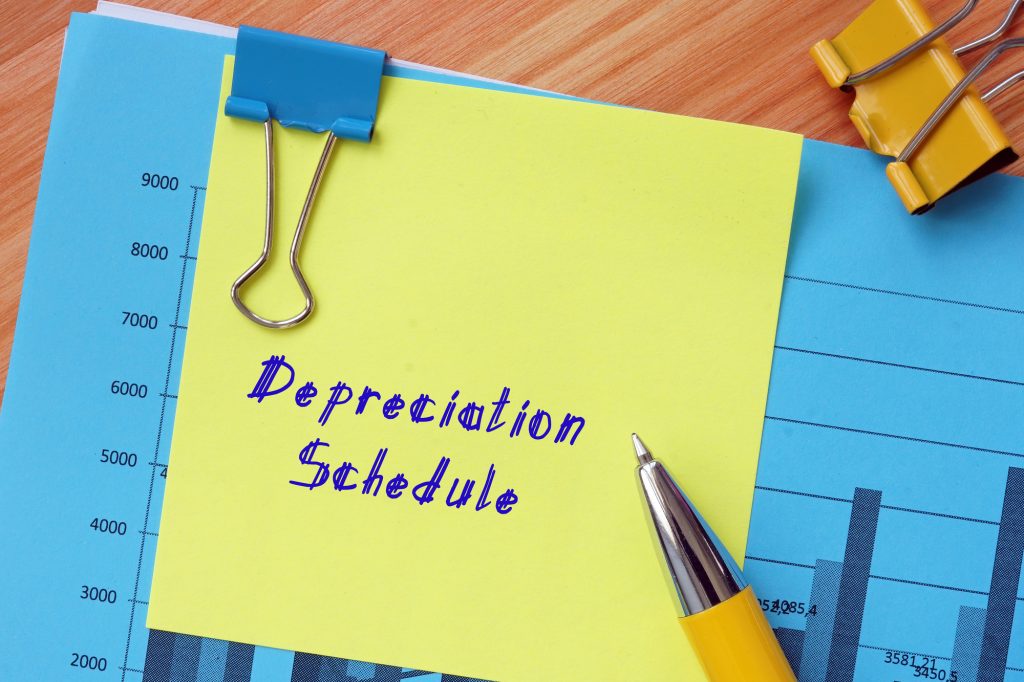Welcome to AUSTRALIA'S Depreciation Schedule Experts
Depreciation Schedules & Reports
We provide depreciation schedules for property investors owners and depreciation reports for business owners.
Delivered by local and qualified quantity surveyors across Melbourne, Sydney, Brisbane, Canberra, Perth & Adelaide.
Call Us Today To Discuss Your Needs!
QUANTITY SURVEYING Services DELIVERED TO PROPERTY INVESTORS & BUSINESS OWNERS, AUSTRALIA WIDE!
We are proud to offer a wide range of specialised services to cater for every investor and business owner in Sydney, Melbourne, Brisbane, Canberra, Adelaide, & Perth.
Tax Depreciation Schedule Services
Our signature offering is our tax depreciation schedule service. This is where we take your business data, analyse it, and prepare depreciation schedules that are guaranteed to reduce your taxable income.
We have certified professionals on staff who know the ins and outs of tax law pertaining to depreciation. We use this knowledge to help you save as much money as possible come Tax Day

Residential Depreciation Schedules
Compared to all the other tax deductions, depreciation is the second largest available to property investors after interest deductions. This can make a
Thus, residential property investors should obtain a depreciation schedule to substantiate this deduction.
Depreciation occurs as a residential structure ages, and its contents wear out.
Each financial year, residential investment property owners are eligible to claim depreciation. An investor’s taxable income is reduced by maximising depreciation deductions.

Residential Depreciation
Depreciation is a tax deduction for the loss in value of any income-producing property’s building structure and plant and equipment assets.
A quantity surveyor who specialises in residential investment properties can help you get the most out of your depreciation claim.
If you’ve bought an investment property, you’re probably aware that you’ll have to pay tax on the earnings each year. Investors can claim tax deductions on their residential properties, according to the ATO. However, a tax depreciation schedule is the only method to submit these claims.
Unlike other deductions that require you to commit expenditures throughout the year, a tax depreciation schedule allows you to deduct capital allowance and depreciation on your property.
New construction
Because their development expenditures are the most significant right after the build, brand new properties often earn the most extensive tax deductions.
The benefits of claiming depreciation, both on the building and all associated assets, are available to owners of brand new investment properties.
Even if construction costs of a new build are known, a quantity surveyor will need to separate out the expenses and depreciation deductions of the building from other included assets.
Older properties
Due to the 40-year effective life of construction and the possible creation of upgrades, older properties can still offer some fantastic deductions for investment owners.
A quantity surveyor can estimate dates and expenses for depreciation purposes even if the timing or costs of the work are unclear.
When it comes to established properties, the timing of the acquisition is crucial. This will help show if second-hand assets purchased at the time of purchase are eligible for yearly deductions or only at the time of sale.
You’ll have all the help you need from our skilled team of quantity surveyors to maximise your depreciation savings, potentially saving you thousands!
Business And Commercial Depreciation Schedules
Both landlords and lessees of commercial property can benefit from significant tax deductions for capital improvements and depreciation of their buildings, fit-outs, and company assets. This will, in turn, increase cash flow and return on investment.
A depreciation schedule for a commercial building is often significantly more complicated than for a residential one. To guarantee maximum results and compliance, you need a professional team to do a complete site survey and analyze the contract of sale, inventories, and leasing agreements.

Building Owners
The capital allowance and depreciation of a commercial property, as well as any associated assets, can result in significant tax benefits.
Both investors and owner-occupiers can get the most out of their buildings by using a depreciation schedule to optimise cash flow and provide needed resources to reinvest in the business.
Lease-holders
For any structural additions or upgrades made to a building, as well as for plant and equipment assets they paid for and installed, leaseholders are allowed to claim capital allowance and depreciation.
This means that they can receive significant tax deductions on any expenditure made on their property during the term of the lease.
Apartment Depreciation Schedules
Because of the small square meter size of many apartments, a widespread misconception is that having a tax depreciation schedule is not helpful or essential. However, on flats, particularly new and recently built ones, substantial tax benefits are still available.
So, why do flats and units create large deductions, considering they are often smaller than homes and appear to have lower construction costs and fewer assets? The answer is found in the communal spaces as well as the more significant building expenditures.
Because an apartment owner also owns a share of the building’s assets, they are entitled to a portion of its expenses. You can deduct depreciation for your part of the drives, basements, and carparks, as well as landscaping, pools, gyms, security systems, fire extinguishers, and any other shared facilities by your complex.
Due to the multi-level structure of apartment/unit complexes, construction expenses per square metre are frequently higher than for a single-family home. Because the cost of the building affects depreciation of finished works, a higher cost of construction means more significant yearly depreciation deductions.

If you own commercial or residential investment property, then you need to use depreciation schedules to reduce your taxable income and increase the cash flow of your business.
After all, it’s not enough to just file your taxes. If you want to save money on next year’s tax return, you will want to ensure that every deduction possible is taken.
There are plenty of rules about what you can deduct for tax purposes. But our quantity surveyors and tax agents are registered with the Tax Practitioners Board and know all the ways to save you money using depreciation schedules.
Who We Are
Our team is one of Australia’s leading quantity surveying firms, responsible for saving our clients billions of dollars in taxes. We know all the rules for doing property searches, estimating construction costs, and assigning asset values.
This is why we are the industry standard for getting you optimum tax savings and every depreciation-related deduction that you deserve.
We accurately forecast claims across 40 years in a report that your accountant will use to claim deductions and improve your cash flow.
We have more than 97 years of combined experience in quantity surveying and tax-saving techniques. With our expertise in this field, no one is better suited to help you increase your cash flow through depreciation schedules.
What We Do
Simply put, we save you money.
We do this by using our knowledge of tax depreciation to build a schedule that covers a comprehensive list of items to include your properties and assets, their purchase price, current value, salvage value, cost basis used for depreciation, and useful life.
From there, we can accurately forecast the depreciation deductions you are entitled to each year.
The result? Maximised tax savings and increased liquidity.
Once going through our reports, your accountant will immediately see how much more money your business will have while changing nothing else at all.

Why Call Us?
Call us because you’re tired of paying more taxes than you have to.
The good news is that you can legally reduce your taxable income and increase the cash flow of your business by using depreciation schedules. A tax depreciation schedule is a powerful tool that can help you save thousands in taxes this year.
When you own an investment property, there are ways to lawfully save money using a depreciation schedule. Our quantity surveyors and tax agents are registered with the Tax Practitioners Board, so they know all the rules for what you can deduct for tax purposes.
We help real estate investors save millions in taxes per year by accurately forecasting deductions over 40 years. There’s no reason you can’t have a part of those savings.
Our highly trained quantity surveying team has years of experience in the valuation, estimation, and depreciation of residential and commercial properties.
When you work with us, you’re working with the top professionals in this field.

Our analysis is thorough and will provide you with a complete picture of your current situation. We have helped countless business owners save more money on their taxes, so we know how to get the job done right.
Our team will work with you on a one-on-one basis to ensure your schedule is accurate and complete.
Our reports are delivered digitally for ease of use and quick turnaround times. Also, they are available 24/7 for the convenience of both you and your accountant.
We keep our pricing very competitive, so cost is never an issue. In fact, our clients save far more money in a single year in taxes than they ever pay us for our services.
Guarantee
We are so confident that our depreciation schedule service will save you money that we offer a 100% guarantee.
We promise that you will save at least two times what you paid for your depreciation schedule in taxes during the first full year after the survey. If you do not, we will refund your entire fee.
This way, you have a risk-free investment that is sure to provide you with a variety of positive returns.
And it is risk-free from our perspective as well – because we have done this long enough to know that you will save far more than what we charge.
Of course, it is impossible to state an exact amount of savings without knowing your specific situation. Still, the fact of the matter is that depreciation schedules save business owners and investors a lot of money by maximising their tax deductions.
Call us today and see what we can do for you!
Quantity Surveyor Services
We provide both traditional and specialist quantity surveyor services.
These services require comprehensive knowledge and expertise in residential, commercial, and industrial construction, as well as the construction process in various industries.
This includes cost estimates, analysing contracts, and doing risk analysis. Quantity surveyors forecast costs, prepare budgets, do tender management, and value construction work. They also can provide input into dispute and claims management.
However, the area wherein we spend the most effort is specialist services. One of these is the area of tax depreciation for commercial and residential property investors.
This is a specialised field that requires knowledge of current ATO Tax Rulings as well as registration with the Tax Practitioner Board as a tax agent. These tax depreciation specialists can be a massive help to real estate investors.
Our quantity surveyors have all the needed qualifications and expertise to provide advice on any tax depreciation issue, as well as to carry out the calculations and prepare all essential reports.

Our Most Common FAQ on Depreciation Schedules

We know that many people have questions about quantity surveyors and depreciation schedules. Here are the ones we receive most commonly.
Q: What are depreciation schedules?
Using accounting techniques, a depreciation schedule charts the decline in value of an item over the time designated as its useful life. Property owners can deduct this decrease in value, according to the Australian Taxation Office.
Depreciation is a non-cash deduction, which means that an investor does not have to spend money to be able to claim it. As a result, investors frequently miss depreciation deductions. These deductions provide extensive tax benefits; thus, ignoring them is an expensive mistake for investors.
Depreciation deductions for the building’s structure, as well as the plant and equipment assets within the property, are available to owners of income-producing properties.
It’s critical to plan a depreciation schedule before the conclusion of the fiscal year so that you maximise your deductions and collect everything you’re qualified for.
Q: How long does a depreciation schedule last?
A depreciation schedule lasts forty years unless there is evidence that it should be shorter. The plan will stop after forty years because the ATO assumes that buildings have a maximum lifespan of forty years after the completion of construction.
If you renovate your property, you may need to amend your depreciation schedule to maximise your depreciation. Adding extensions or even minor upgrades can change the depreciation schedule. You and your accountant should discuss whether a new depreciation schedule is warranted.
But, short of changes to the structure, you can rely on the same schedule throughout the life of the property.
Q: Do you need a depreciation schedule every year?
No. You only need to have a depreciation schedule done once during the life of your property. If you get the schedule done directly after property settlement, you can use it for the entire forty years of your building’s life.
The only caveat to this rule is that if you make significant changes or improvements to your property, you may want to obtain another depreciation schedule. This might include a modification of the structure, a new addition, or even a renovation that would significantly impact your tax deductions.
That being said, there are very few plausible reasons that an investor would ever do a depreciation schedule every single year. You can feel confident that you wouldn’t warrant a new schedule annually.
Q: How long to keep depreciation schedules?
The ATO says that you should keep a depreciation schedule for as long as you own the property and then for five years after that. By doing this, you can be sure to have documentation that supports your tax claims if the ATO ever asks to see them in the future.
Some recommend that you keep them for seven to ten years in case of questions about your claims. However, you are not required by the ATO to do so. Thus, you can choose to discard them after five years if you wish.
Q: What is a depreciation report?
Generally, the terms depreciate schedule and depreciation report are used interchangeably.
However, some firms may provide a depreciation report in simple language to show how your assets are depreciating over time. But this report is meant for personal use only.
Those firms will use the term depreciation schedule to describe the official document that provides depreciation information to your accountant so that it can be used when preparing your taxes for the ATO.
Q: Where to get a depreciation schedule?
In order to get a depreciation schedule, you must hire a quantity surveyor. These individuals are trained to examine properties and determine the value of the building and its assets.
These are specialists recognised by the ATO as having the training to conduct a property inspection. The ATO requires this inspection to be done by someone who can accurately estimate costs for property and assets.
As such, you want to make sure you find a quantity surveyor who is experienced in working on depreciation schedules.
Q: Who does depreciation schedules?
Quantity surveyors create depreciation schedules. Once they have completed a thorough inspection of the property, they will be able to provide a depreciation schedule to be used by your accountant for tax purposes.
Although many quantity surveyors do not focus their work on tax depreciation, those that do are the best qualified to handle the complex calculations that go into the property evaluation for a depreciation schedule.
You want to make sure you find a quantity surveyor recognised by the ATO and experienced in working on depreciation schedules. You can then feel confident that the quantity surveyor you hire is up to date on performing these inspections and creating accurate depreciation schedules.
Q: Who are quantity surveyors?
Quantity surveyors are professionals who deal with the construction industry, ensuring that cost estimates are accurate within specific parameters. They most often work in the actual construction of buildings – contracts, budgeting, risk analysis, and many other areas.
Within quantity surveyors, there are specialists who calculate depreciable values of properties and assets. They use the same skills to create depreciation schedules that they would for any other project, just with a different, more careful focus on factors that determine the value of the building and assets in their properties.
Q: Where do quantity surveyors work?
Quantity Surveyors generally work in offices, but they also visit clients at their building sites regularly. They may work on large or small projects to determine the right amount of cost estimation for construction, or depreciation expenses for taxes, to assign to their clients’ buildings.
Q: Who do quantity surveyors work with?
Quantity surveyors may work with any sort of client, but they are most often found in the construction, property, and land management industries. Here, they calculate costs that relate to projects. They also figure depreciation for tax purposes, which typically helps their clients lower their overall tax bills.
Q: Why are quantity surveyors important?
In the construction and tax environments, quantity surveyors are of great importance. They provide independent advice on financial matters, which both their clients and the tax authorities must take seriously.
On one side, quantity surveyors are needed for cost estimation on new construction projects so that they have an accurate idea of how much things will cost to build.
Quantity surveyors also provide depreciation schedules for buildings. This is important because it allows for information on how much a building may depreciate each year, which helps determine taxes on that asset.
Q: How much is a depreciation schedule?
The cost of a depreciation schedule varies based on the size and complexity of the property that the quantity surveyor is inspecting.
A budget self-assessment on a small residential property may cost as little as $275. For a full inspection, you may pay as much as $775.
Commercial properties can cost much more. This is because they will involve more surveyor time and resources than one that’s smaller. This is to ensure all parts are inspected thoroughly so that there are no complications during tax season.
Q: How much do quantity surveyors charge?
Quantity surveyors who are employed as construction contractors generally charge 0.5%-2% of the total contract cost. This surveyor would be your primary contact throughout the construction process, and they will provide associated services as well.
Quantity surveyors who are employed by a depreciation schedule company are paid by the firm. The client pays the price of the depreciation schedule, generally between $275-$775 for a small residential property.
Q: How are depreciation schedules determined?
Every quantity surveyor has their own process. However, most of them will first talk to you about your property.
Then they will coordinate with your property manager and inspect your property. They will be particularly interested in details such as any renovations you may have done.
They will then talk to other people who can help them with information about the location.
After this inspection process, the surveyor will be able to provide you with a depreciation schedule for your property.
Depreciation schedules can take anywhere from days up to several weeks to complete, depending on the complexity of the property being inspected and the availability of information needed for its construction and repair history.
Q: When should you get a depreciation schedule?
There is never a bad time to get your depreciation schedule – but sooner is better than later. If you acquire a depreciation schedule before June 30th, you can claim the deduction in the same financial year.
This is because the entire cost of a depreciation schedule is itself a tax-deductible expense. It is a one-time cost that can last the full life of the property.
Q: Is a depreciation schedule worth it?
In the vast majority of cases, getting a depreciation schedule on your investment is well worth doing. It helps you get the most out of your investment, and it can save a lot of money in taxes.
Of course, there are a few exceptions to this rule. If your property is a low-value or at the end of its useful life, the depreciation schedule may not bring enough value to be worthy of your investment.
That being said, you can simply call one of our friendly quantity surveyors, and they can offer their professional advice on whether you should get a depreciation schedule done.
Q: How do you calculate a depreciation schedule?
In Australia, there are two main calculation methods for depreciation schedules. They are known as the prime cost (or straight-line) method or the diminishing value method.
The fundamental difference between the two methods is that the prime cost method assumes that an asset’s value decreases uniformly over its effective life. In contrast, the diminishing value method presumes that the value decreases more in the early years than in the later ones.
The prime cost calculation is straightforward because you claim a fixed amount of depreciation every year. The formula for this method is:
asset’s cost × (days held ÷ 365) × (100% ÷ asset’s effective life)
You use a different formula for the diminishing value method. Instead of the asset cost, you use the current base value for the property. This is because you depreciate the property’s value in an accelerated manner so that the base value will diminish in a non-linear fashion every year. The formula is:
this year’s base value × (days held ÷ 365) × (200% ÷ asset’s effective life)
Each of these methods has benefits and drawbacks. It is up to you and your accountant to decide which one is most financially advantageous for you.
Q: What is prime cost versus diminishing value?
Prime cost and diminishing value are two options that you can use to work out how much a property has depreciated. You can then use the calculation result on your taxes to offset the property’s taxable income.
You can use each of these methods to work out how much the property has depreciated. The prime method will give you the same deduction every year that is on the schedule. The diminishing value method will yield a higher deduction now and less of a deduction each consecutive year.
You should consult with your accountant or tax professional to determine which method is best for your situation.
Q: How do depreciation schedules work?
Our depreciation schedules are designed to give you and your accountant everything you need to maximise your tax deductions on your investment property.
These schedules include a full depreciation forecast that illustrates all items in detail. It also lays out both prime cost and diminishing value methods so that you can see which option best fits your financial situation.
The depreciation schedule will also contain the effective lifespan and depreciation rates for all equipment and plant assets in your property.
With these schedules, you’ll be able to get the most out of your financial investment and make sure it pays off tax-wise.
Q: How to read a federal depreciation schedule?
A depreciation schedule is generally broken up into two parts.
The first section is the Division 43 capital works allowance, which is the section that details the depreciation of the building and property. It is broken down by year and shows the diminishing value of the property over its effective life.
The second section is Division 40 plant and equipment depreciation which details plant assets or any equipment used in your property. This part is also broken down by year, but you will find that equipment and assets generally are depreciated over a much shorter timeframe than a building is.
Depreciation Schedules & Reports
Make no mistake, taxes are confusing, and it’s hard to figure out what deductions you can claim. You need to ensure that you get all the available deductions, but most people don’t know how to calculate depreciation deductions.
The ATO has a tonne of rules about property depreciation that are impossible to remember. If you are like most business owners, the last thing you want to do is figure out depreciation schedules and reports on your own. It’s confusing, time-consuming, and stressful.
Our experienced, trained, and certified quantity surveyors will generate a schedule outlining all available property depreciation deductions that apply to your assets. You can easily share our reports with accountants or other relevant parties involved in filing your taxes.

How We Can Help
Our tax depreciation schedules and reports are the perfect solutions if you own a business and are looking to reduce your taxable income. They’ll help you find all available property depreciation deductions that you can claim at tax time.
We know you’re tired of paying too much tax. You want to save money on next year’s tax return, and with our help, you can reduce your taxable income and increase the cash flow of your business by using depreciation schedules.
You can take deductions for certain items that might not be clear to the average investor. That is why we have a team of quantity surveyors and tax agents registered with the Tax Practitioners Board. They know the rules and can help eliminate any ambiguity.
We make it easy by doing all the work for you. Forget going it alone when it comes to depreciation. Let our professional team handle the process from start to finish.
A well-structured depreciation schedule makes everything easier. Our reports include an overview of every depreciable asset on your balance sheet, along with their depreciation schedule and other relevant information.
This way, you can make sure that no deduction goes unclaimed when filing taxes this year.
And given our guarantee, you have nothing to lose by calling us now.
